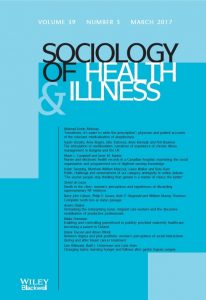Earthquakes in Turkey: reflections from past experience
On 6 February, at 04.17 in the morning, an earthquake of magnitude 7.7 on the Richter Scale hit eastern Turkey, caused by the rupture in the East Anatolian fault. Scientists have been warning about the seismic gap in Kahramanmaras province and the vicinity, and an earthquake in the area was expected sooner or later. The earthquake hit 10 provinces and affected approximately 16 million people. Nine hours later there was a second earthquake of magnitude 7.6. The scale of the...




















1468-0491/asset/society_affiliation_image.gif?v=1&s=859caf337f44d9bf73120debe8a7ad67751a0209)